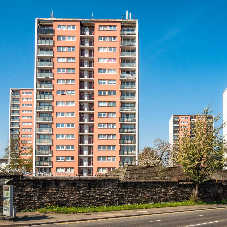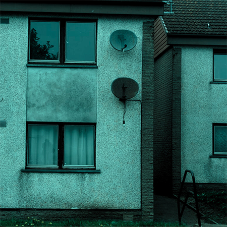When deciding between timber windows, aluminium windows and uPVC windows for your next construction project, it is important to consider the benefits of each, as well as the potential limitations.
In this article we take a look at what to consider when specifying windows, and the pros and cons of timber windows, aluminium windows and uPVC windows.
Specifying Windows
There are a number of different factors to consider when specifying windows:
• Building design Is the building a period property or modern development? The windows finish will need to be in keeping with the style of the building. Consider the aspirations of the client to ensure you specify the right style of windows.
• Building performance As the windows will contribute to the overall building performance, you will need to consider performance ratings and Building Regulation requirements for windows. For example, replacement windows will have different requirements to new build windows.
• Planning Are there any planning requirements? For example, if the building is in a Grade II listed or Conservation area, you will need to consider this in the window style.
• Windows details This includes things such as the glazing requirements. For example, should the glazing be double-glazed or triple-glazed? Plus, consider the security features that need to be incorporated, such as locks and access control.
• Sustainability When deciding which material to use for your windows, it is also important to consider the environment and future. How sustainable is the material? Is it recyclable?
• Budget Of course, budget is a key requirement. When calculating costs remember to look at the whole lifespan, as some window types will last longer than others.
Let’s consider the advantage and disadvantages of timber windows, aluminium windows and uPVC windows.
Advantages of Timber Windows
• Timber framed windows have a long lifespan. This can be over 60 years when made to Wood Window Alliance standards. (To compare, uPVC windows have a lifespan of around 30 years)
• Timber windows can be maintained and repaired to increase their lifespan, without having to replace the whole window
• Timber windows can add character, especially to period properties or those in a conservation area
• Timber windows have a low thermal conductivity, so are a good insulator
• Timber windows are more eco-friendly when using FSC certified timber
Disadvantages of Timber Windows
• Timber windows can suffer from draughts or rattles if not installed properly and maintained
• Timber windows need to be maintained to protect the wood. They can rot if left untreated.
• Timber windows are more susceptible to the outside environment, such as the weather and where they are installed. For example, salt in the air can affect timber frames on properties built close to the ocean
• Timber windows are vulnerable to insects, for example termites
• Timber windows can be more expensive than uPVC windows
Advantages of Aluminium Windows
• Aluminium windows are extremely durable. Aluminium is a light material, but still strong. It doesn’t require much maintenance and is resistant to corrosion and decay
• Aluminium frames can be easily moulded if your windows are an unusual shape, for example curved windows
• Aluminium windows provide a modern aesthetic, so is ideal for contemporary buildings
• Aluminium frames are recyclable, so after use the material can be melted down to create other products
• Aluminium windows are less expensive than timber windows
Disadvantages of Aluminium Windows
• Aluminium windows have high thermal conductivity, so they don’t hold heat very well
• Aluminium windows may have the problem of condensation, which is linked to their high thermal conductivity. Moisture can lead to the growth of fungi, leading to health issues, especially for allergy sufferers
• Aluminium windows are not as aesthetically pleasing as timber windows
Advantages of uPVC Windows
• uPVC frames are lightweight, durable and resistant to pollution
• uPVC windows need little maintenance with only regular cleaning. This can save valuable time
• uPVC windows are a good insulator to keep heat in and sound out
• uPVC windows have a modern look, so suitable for contemporary buildings
• uPVC windows are cheaper than timber windows so provide value for money
Disadvantages of uPVC Windows
• uPVC frames can become discoloured as a result of exposure to the sun
• uPVC windows can look plain and unstylish, and may not be suitable for listed buildings or those within conservation areas
• uPVC windows have a shorter lifespan than timber windows
Conclusion
To ensure you specify the most suitable style of windows, it is important to consider all of the benefits and limitations, while taking into account the requirements of the specific project. Factors such as the building design, building performance, planning, sustainability and budget will need to be contemplated as well as what the Client is looking to achieve.
Take a look at the timber windows, aluminium windows and uPVC windows listed on Barbour Product Search for some inspiration.
Related Blog Articles



crop192.png)












